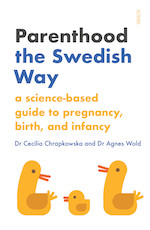As feminists, we advocate for parents to equally share both the responsibility for and the practical care of their child. We believe that this sharing gives both parents the chance to establish a healthy, lifelong relationship with their child and to preserve their own relationship in the face of the inevitable stresses of parenthood. As well, a fair division of parenting gives each parent the chance to achieve financial independence and a liveable income into the future.
Having a baby will take away most of your free time at a stroke, and land you with the responsibility for looking after a new person and providing for them for the next 18 years. This is not a voluntary relationship; it’s your obligation under the law.
Resentment occurs when one party in a relationship feels that they are not getting their fair share of something—often freedom, time or money. The emotion of resentment can be a healthy and natural defence mechanism. Resentment should be taken seriously as a warning sign that one person in a relationship may be being exploited.
Fortunately, there is an excellent way to protect against the toxic effects of resentment: Undertake to share your parental responsibilities, housework and work entitlements fairly. And we mean sharing the parenting down to the most minute level.
Striving for absolute fairness is often seen as a little childish and petty. If you truly love each other, you’re above all that, aren’t you? Don’t fall into this trap of thinking. You won’t have any regrets if you share everything equally. But if you share things unequally, there is a major risk that at least one of you will regret it. In the worst case, both of you could end up feeling cheated by the other.
The Swedish difference
Sweden has among the most generous parental-benefit provisions in the world. The state covers parents or guardians for 240 days of paid parental leave each. For 180 of these days, parents are entitled to 77.6 per cent of their regular salary (and often more from their employer if a collective agreement applies). One parent can transfer days to the other parent, or to their partner if they are married or have other children together. A single parent receives 480 days of parental benefit. In addition to these paid days, a parent of a child under 12 months is entitled to take unpaid parental leave, and they may choose to do so when the other parent is at home on parental benefit.
The partner who is at home for just a few hours in the evening has limited opportunity to train the neural caring circuits and interpret their baby’s signals. The baby doesn’t get to practise the particular play of emotions and facial expressions that this human would fall head over heels for. And there’s no need for the baby to try too hard, as there is almost always another parent nearby who has had much more training and whom the infant has got to know extremely well. For whole days, the baby and the parent in the carer role have been developing their relationship and seem to understand each other well, while the non-carer parent becomes something of an outsider. After just a few weeks of absence, the relationship with the parent who is away during the day seriously falls behind.
A study published in 2007 examined the experience of men who took parental leave when they were given the option in the 1970s, and compared their experience to those men who turned down the option. The study showed that men who took parental leave had a lower risk of premature death than those who turned it down. Even after the researchers controlled the results for education, financial status and country of birth, the increased life expectancy of fathers who had taken parental leave remained. We can speculate on the reasons for this finding. Maybe the fathers who were closely involved in the care of their children also became better at looking after themselves and their own health. Maybe they created closer relationships with children and grandchildren that gave them a greater sense of meaning and increased their ability to hold onto their lust for life into the autumn of their years.
Why mums often stay home
There are plenty of public commentators who declare that it’s better for a mother to take the lead “at least in the beginning”, and that infants need to bond to one person at a time, but there is no research to support these assertions. Much of this thinking harks back to psychoanalytical theory from the 1950s. After World War II, in the USA and other Western countries, women who had gone out to work in manufacturing were encouraged to return home and not compete with men in the labour market. The ideal of the housewife took centre stage, and psychologists adapted their theories to explain that this way of living—with the mother as the active parent, and the father as a guest in the home—was best for children. However, this model of the nuclear family, with one parent at home, is a relatively recent phenomenon. Throughout the development of human societies and across cultures, young children have been looked after by mothers, aunts, siblings and various other caregivers.
It seems as if many people perceive men’s jobs to be more important, exciting and rewarding than women’s jobs, thus rationalising the fact that women take the lead in the home. Let’s examine this argument. The six most common jobs for Swedish men (in descending order) are salesman, warehouse worker, lorry driver, programmer, carpenter and metalworker. The six most common jobs for women are nurse, teacher, childcare worker, preschool teacher, care worker and office worker. We can see that women and men have very different jobs, and that women’s jobs focus mainly on care and education, usually in the public sector. Many jobs are important, but it’s hard to understand how, in general, men’s jobs can be considered more important to society than women’s jobs.
If you think that talking about going your separate ways at this stage is a little depressing, it might make you feel better to learn that research shows the risk of divorce is lower if the parents have shared the parental leave with their first child. It’s hard to be sure of the reasons for this, but, as we explain above, sharing both the burdens and the joys equally is likely to be good for your relationship, as is having a reasonably similar view of what is and isn’t important. You have a better chance of discussing your way to a consensus if you develop your parenting side by side, instead of one parent increasingly taking the lead and the other barely keeping up with their child’s development. The same research has shown that parents who shared the parental leave with their first child are more likely to go on to have a second child.
Research shows that a couple who share parental leave and work equally divorce less often than those who split it unequally. We believe that shared responsibility, solidarity and companionship serve as a kind of glue that will hold the relationship together. We are, however, not aware of any research showing that maintaining romance by eating out at restaurants, going away together or cultivating shared interests reduces the risk of divorce. Such activities won’t do any harm. But equal parenting is still a more important investment, because it will remain an asset whether you live together for the rest of your lives or decide to go your separate ways after a few years. Being on the same page and sharing responsibilities as parents lays a firm foundation for working together, either in a loving relationship or in a parental relationship after a split.

This is an edited extract from Parenthood the Swedish Way: A science-based guide to pregnancy, birth, and infancy by Dr Cecilia Chrapkowska and Dr Agnes Wold (Scribe $35.00)
How helpful was this article?
Click on a star to rate it!
0 / 5. 0
Be the first to rate this post!
Dr Cecilia Chrapkowska & Dr Agnes Wold
Related posts
Subscribe
Receive personalised articles from experts and wellness inspiration weekly!


